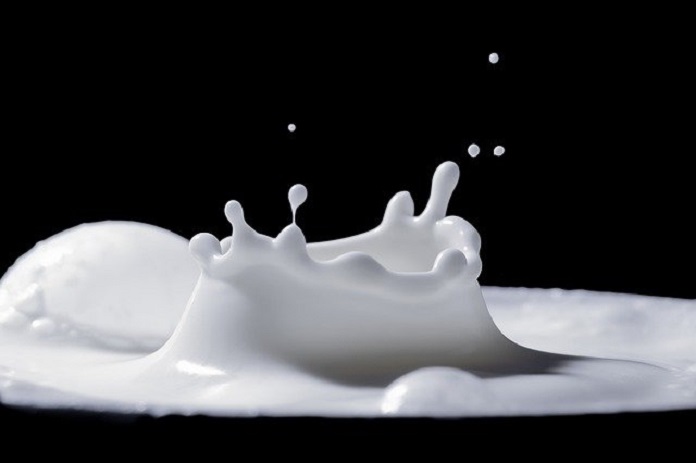Drinking milk while breastfeeding may decrease the risk of allergies in children, according to a new study.
The occurrence of food allergies in infants and children may be reduced by drinking cow’s milk while breastfeeding, suggested by the results of a recent study from Northern Sweden. Researchers investigated the relationship between diet during pregnancy and lactation and allergy frequency in infants during their first year of life. A total of 637 families participated in this study between 2015 and 2018.
Mothers were asked to complete food frequency questionnaires during pregnancy and after birth.
The questions consisted of dietary information, such as intake of probiotics, sugars, heavy metals, and fats. Maternal blood and breast milk were tested for biomarkers, specifically, pentadecanoic acid and heptadecanoic acid, which are found in cow’s milk.
Children were assessed for allergies once they reached 12 months of age
Children whose mothers had a higher consumption of dairy products presented lower probabilities of food allergies than mothers who had lower consumption of dairy products. According to the hygiene hypothesis, cow’s milk contains microorganisms that encourage the development of a child’s immune system. Presently, it is uncertain what properties of milk prevent food allergies.
The results suggest that maternal nutrition, specifically drinking milk while breastfeeding, can have a significant impact on the development of allergies in children.
Affecting approximately 30% of individuals worldwide, allergies are one of the more frequently diagnosed and reoccurring chronic diseases in children. They are a product of both genetic and environmental factors. Researches believe that certain genetic loci, such as the SERPINB gene cluster on chromosome 18, may be responsible for the development of food allergies. Environmental factors, such as obesity, maternal stress and maternal diet (as reviewed in the study) are influential components in allergy development in children.
Understanding and preventing the factors that contribute to the degradation of a child’s immune system could potentially save a life. Additional research is needed to investigate the mechanisms and consequences of both genetic and environmental factors on infant immune systems.
References
Burbank, A., Sood, A., Kesic, M., Peden, D., & Hernandez, M. (2017, July). Environmental determinants of allergy and asthma in early life. Retrieved from https://www.ncbi.nlm.nih.gov/pmc/articles/PMC5675123/pdf/nihms883642.pdf
Chad, Z. (2001, October). Allergies in children. Retrieved from https://www.ncbi.nlm.nih.gov/pmc/articles/ PMC2805592/
Chalmersuniv. (2020, December 21). Drinking milk while breastfeeding may reduce the child’s food allergy risk. Retrieved from https://www.eurekalert.org/pub_releases/2020-12/cuot-dmw122020.php
Delbrück, M. (2017, October 24). Genetic causes of children’s food allergies. Retrieved from https://www.sciencedaily.com/releases/2017/10/171024110707.htm
Stråvik, M., Barman, M., Hesselmar, B., Sandin, A., Wold, A., & Sandberg, A. (2020, November 28). Maternal Intake of Cow’s Milk during Lactation Is Associated with Lower Prevalence of Food Allergy in Offspring. Retrieved from https://www.mdpi.com/2072-6643/12/12/3680/htm
Image by Myriams-Fotos from Pixabay



